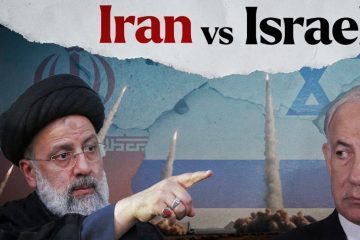Ukraine anticipating that Trump will advocate for negotiations

Ukraine holds onto a diminishing fragment of Russian territory, anticipating that Trump will advocate for negotiations aimed at achieving peace. In the Kursk region of Russia, situated just to the north, Ukrainian soldiers report that the intensity of Russian assaults is such that their infantrymen occasionally tread upon the bodies of their fallen comrades. Russian glide bombs, each weighing a ton, strike Ukrainian supply routes with precision. Last week, Ukraine executed a series of Western missile strikes in the opposite direction, reportedly resulting in injuries to a North Korean general.
“They’re assaulting constantly—morning, day, night,” stated Geniy, a 30-year-old battalion commander with Ukraine’s 47th Mechanized Brigade. The struggle for dominance in Russia’s Kursk region has escalated to a level seldom witnessed in the 2½ years of conflict, as both factions endeavor to fortify their positions ahead of President-elect Donald Trump’s inauguration in January, who advocates for negotiations between the parties.
According to Ukrainian officials, Moscow has stationed approximately 45,000 troops in the region, comprising some of its elite forces that are launching relentless assaults. In spite of significant losses, the approach seems to be yielding results: In the past few weeks, Russia has reclaimed almost 50% of the territory that Ukraine captured during its offensive in August. Experts suggest that Russia could be preparing for a significantly larger offensive in that region. However, Ukraine has dispatched a significant number of its elite brigades to Kursk. Moreover, President Biden’s recent authorization for Kyiv to deploy long-range American missiles against Russia has provided Ukrainian forces with a significant enhancement, potentially undermining Moscow’s supply and command networks.
Rep. Michael Waltz (R., Fla.), selected by Trump as national security adviser, indicated that he had conferred with his counterpart in the Biden administration. On Sunday, he voiced some endorsement for the recent decision to supply Ukraine with long-range mis siles and land mines. “Those adversaries who perceive this as a moment of opportunity, believing they can exploit divisions between administrations, are mistaken,” Waltz remarked during an appearance on Fox. “We are closely aligned, functioning as a unified team with the United States during this transition,” he stated.
Nonetheless, there are concerns among some in Kyiv that Trump’s inclination towards negotiations may ultimately benefit the Russians. Ukrainian officials assert that Russia appears intent on reclaiming Kursk prior to Trump’s inauguration. Should Kyiv manage to retain a portion of territory in Kursk, it may provide Ukraine with a significant leverage point in forthcoming peace negotiations. “It is a contest of the finest Ukrainian forces versus the finest Russian forces,” remarked a 35-year-old Ukrainian sergeant engaged in combat in Kursk, known by the call sign Dzhyn. “Given the current circumstances, I find no justification for our withdrawal.”
Geniy, the battalion commander of Ukraine’s 47th Brigade, noted that upon his troops’ arrival in the Kursk region two months prior, the Russian defenses were primarily manned by conscripted soldiers. Approximately six weeks ago, the Russian counteroffensive commenced. With a coordinated advance of armored vehicles, they compelled the Ukrainians to retreat from a modest village in the vicinity. Following the loss of a dozen armored vehicles, Geniy noted that the Russians shifted their approach, opting to deploy troops on foot in smaller contingents.
From a command post situated close to the Russian border, recently visited by reporters, he observed a drone feed displaying three Russian soldiers stealthily advancing through a forest towa rds a devastated village previously held by Ukrainian forces in the Kursk region. Subsequently, three additional Russians emerged in close proximity. Geniy ordered a series of mortar strikes, one after another. Each was unable to strike them. “Managing three individuals is relatively straightforward; however, when they come in succession, certain ones are capable of making progress,” he remarked. “Occasionally, it may only be a matter of meters, yet over the span of weeks, this accumulates into substantial advancement.”
In contrast to the eastern front, where Ukrainian forces have long reported deficiencies in ammunition and personnel, the brigades engaged in the Kursk operation are predominantly well-supplied. Geniy stated that his unit has successfully implemented regular troop rotations in the trenches, facilitated by the use of American-made Bradley Fighting Vehicles. This capability stands in stark contrast to the challenges faced by units l acking advanced equipment, as the persistent threat of drones has made such rotations nearly unfeasible.He noted that the introduction of long-range Western missiles has altered the strategic dynamics in the region. Ukraine recently targeted a command post using British-made Storm Shadow missiles, resulting in injuries to a North Korean general.
Ukrainian officials report the deployment of 10,000 North Korean troops to the Kursk region; however, soldiers interviewed by the Journal have yet to encounter them in combat. Ukrainian forces have received Korean phrasebooks in anticipation of potential involvement from Kim Jong Un’s military. Geniy noted that the Russians possess significant advantages in Kursk: In the region where the 47th Brigade is engaged, Moscow fields approximately three times the number of personnel compared to the Ukrainians, alongside a sixfold superiority in small explosive drones deployed against vehicles and infantry. Ukrainian forces engaged in various sectors of the Kursk region report substantial losses incurred by Moscow during the ongoing offensive. U.S. officials project that Russia is incurring approximately 1,200 casualties, both dead and injured, on a daily basis along the entire front line. British officials report that Moscow has incurred 700,000 casualties since the onset of the full-scale invasion of Ukraine.
“Counting them is a challenge—the area of engagement is strewn with bodies,” remarked a Ukrainian private engaged in combat southeast of Sudzha, the principal Ukrainian-controlled city in the Kursk region. “They are quite literally trampling over the bodies of their fallen comrades during the assault.” However, the setbacks do not seem to dissuade the Kremlin, which is leveraging Russia’s greater population to exhaust Ukrainian military capabilities. British officials have expressed skepticism regarding the likelihood of Russian President Vladimir Putin’s willingness to engage in negotiations at this time. A soldier positioned southeast of Sudzha reported that Ukrainian forces were outnumbered by approximately 10-to-1 in the region, with the majority of his battalion sustaining injuries and being rendered incapable of combat.
Ukraine encounters additional obstacles as well. Moscow is targeting supply lines and storage facilities with glide bombs, leaving Ukrainian forces unable to intercept them. Fundamental communication presents challenges, as Starlink—Elon Musk’s satellite internet system, which has become integral to the Ukrainian military’s communications—fails to operate within Russian territory. Vyachyslav Khomenko, a platoon commander in Ukraine’s 21st Mechanized Brigade, drew parallels between the current combat and the fierce engagements witnessed in Bakhmut, recognized as the most lethal confrontation of the conflict. Khomenko reported that his forces faced a numerical disadvantage of approximately three to one in the vicinity of the village of Pogrebki, which had been captured by Russian troops several weeks prior. He stated that his unit has withdrawn beyond a dam, a position that will pose significant challenges for Moscow to reclaim.
However, in the third year of the conflict, Khomenko noted that inspiring soldiers has increasingly proven to be a challenge. A significant majority of the personnel in his platoon are conscripts, possessin g minimal experience and a lack of enthusiasm for combat. “Individuals are fatigued,” he remarked. “At least once a month, I find it necessary to remind them that their struggle is for the benefit of their grandchildren, ensuring they will not have to endure the same challenges.” During the initial year of the conflict, the notion of delivering such a speech would have been inconceivable to me.
Franz-Stefan Gady, a military analyst based in Vienna, recently observed Ukrainian military units and noted that Ukraine faces significant challenges in replenishing its ranks, resulting in many units being severely depleted. The Russians, he noted, seemed to be attempting to exhaust the Ukrainians in advance of a more substantial offensive aimed at reclaiming the Kursk region. He remarked that he did not believe Putin was presently inclined to negotiate, as he perceived himself to be prevailing in the conflict; however, this stance could shift should the U.S. opt to enhance arms shipments to Ukraine, potentially serving as a catalyst to draw M oscow into discussions. “The Ukrainian approach in this context is to retain it as a leverage point and secure a favorable attrition ratio in relation to the Russians,” he stated. He expressed skepticism about Ukraine’s ability to maintain control over Kursk, while also noting, “I think the Russians will face a challenging battle.”
General Oleksandr Syrskiy, the foremost military leader of Ukraine, has informed local media that the Kursk operation has successfully dissuaded Russian offensives in other regions. Nevertheless, Moscow has made more significant progress in eastern Ukraine in recent months than at any ti me since the onset of the full-scale conflict in 2022. Ukrainian soldiers engaged in the Kursk offensive have expressed uncertainty regarding the operation’s overall value. Frustration was voiced regarding the territorial losses in the east, where under-resourced units were being overwhelmed. Some asserted that if they could maintain their position in Kursk until the onset of winter, it would be challenging to dislodge them before the arrival of spring.










